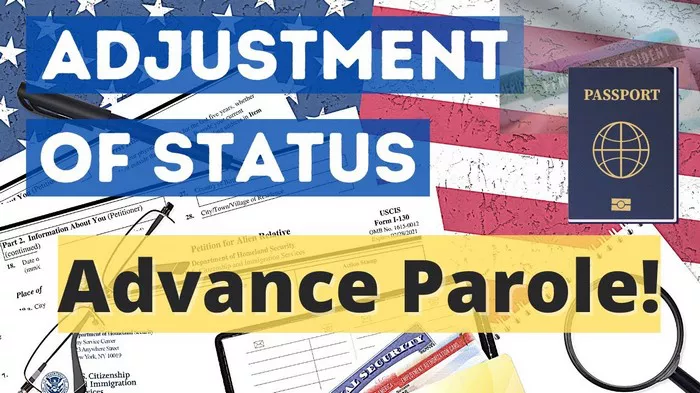Advance parole is a crucial immigration document that allows certain individuals to re-enter the United States after traveling abroad, even if they do not have a valid immigrant visa or non-immigrant status. This article explores the eligibility criteria for advance parole, its benefits, application process, and considerations for applicants.
What is Advance Parole?
Advance parole is a travel document issued by the U.S. Citizenship and Immigration Services (USCIS). It permits individuals who are in the process of adjusting their status to lawful permanent resident (green card holder) or who have a pending application for certain immigration benefits to re-enter the United States after traveling abroad.
Eligibility for Advance Parole
1. Adjustment of Status Applicants
Individuals applying for adjustment of status (Form I-485) based on family, employment, refugee, or asylum status are generally eligible for advance parole. They must demonstrate a valid reason for traveling abroad, such as educational, humanitarian, or employment purposes.
2. DACA Recipients
Deferred Action for Childhood Arrivals (DACA) recipients may be eligible for advance parole under specific circumstances. Travel for educational, employment, or humanitarian purposes is typically allowed, but DACA recipients should consult with an immigration attorney before applying.
3. TPS Beneficiaries
Temporary Protected Status (TPS) beneficiaries may apply for advance parole if they have a valid reason for travel, such as family emergencies or educational purposes. TPS holders should check with USCIS for current guidelines regarding advance parole.
4. Pending Asylum Applicants
Individuals with pending asylum applications (Form I-589) can apply for advance parole if they need to travel abroad for urgent reasons, such as family emergencies or humanitarian aid work. Approval is discretionary and subject to USCIS guidelines.
5. Other Special Cases
Certain individuals with pending applications for U or T visas, adjustment based on special immigrant juvenile status (SIJS), or other humanitarian benefits may also be eligible for advance parole. Each case is reviewed individually by USCIS.
Benefits of Advance Parole
1. Facilitates Travel
Advance parole allows individuals to travel internationally without jeopardizing their pending immigration status. It provides peace of mind for those who need to visit family abroad or attend to urgent matters.
2. Maintains Immigration Status
Traveling without advance parole can lead to serious consequences, such as denial of re-entry, abandonment of immigration applications, or triggering unlawful presence. Advance parole mitigates these risks.
3. Promotes Family Unity
For many immigrants, advance parole is crucial for maintaining connections with family members abroad. It enables reunification efforts and supports familial bonds during the immigration process.
4. Supports Humanitarian Causes
Advance parole assists individuals engaged in humanitarian work or responding to emergencies abroad. It allows them to travel for purposes such as disaster relief, medical assistance, or educational endeavors.
Applying for Advance Parole
1. Form I-131 Application
To apply for advance parole, individuals must submit Form I-131, Application for Travel Document, to USCIS. The form requires detailed information about the applicant’s immigration status, travel plans, reasons for travel, and supporting documentation.
2. Supporting Documentation
Applicants must include supporting documents with their Form I-131, such as evidence of pending immigration applications, employment or educational opportunities abroad, medical records (if applicable), and proof of ties to the United States.
3. USCIS Processing
Once USCIS receives the application, processing times vary but typically range from a few months to over a year, depending on the applicant’s circumstances and USCIS workload. Expedited processing may be available in certain urgent situations.
4. Travel Authorization
If approved, USCIS issues an advance parole document to the applicant. This document allows multiple entries into the United States within a specified timeframe (usually one year), enabling the individual to travel abroad and return legally.
SEE ALSO: WHAT IS AN IMMIGRATION STATUS DOCUMENT?
Considerations for Advance Parole Applicants
1. Travel Risks
While advance parole facilitates legal re-entry into the United States, there are inherent risks. Changes in immigration policies or personal circumstances can affect re-entry eligibility, so applicants should stay informed and consult with immigration professionals.
2. Timing and Planning
Planning travel with advance parole requires careful consideration of processing times, travel restrictions, and potential delays. Applicants should plan well in advance and prepare for unexpected changes in their immigration status.
3. Legal Assistance
Navigating the advance parole process can be complex. Consulting with an experienced immigration attorney or accredited representative can help ensure that applications are completed accurately and in compliance with USCIS requirements.
Conclusion
Advance parole is a vital tool for immigrants navigating the complexities of the U.S. immigration system. By understanding eligibility criteria, benefits, and the application process, individuals can make informed decisions about travel while maintaining their immigration status and pursuing their goals in the United States.
This article has provided an in-depth exploration of who is eligible for advance parole, emphasizing its importance in facilitating lawful travel and supporting family unity and humanitarian efforts. For further guidance, applicants are encouraged to consult with USCIS resources or seek professional immigration advice tailored to their specific circumstances.


